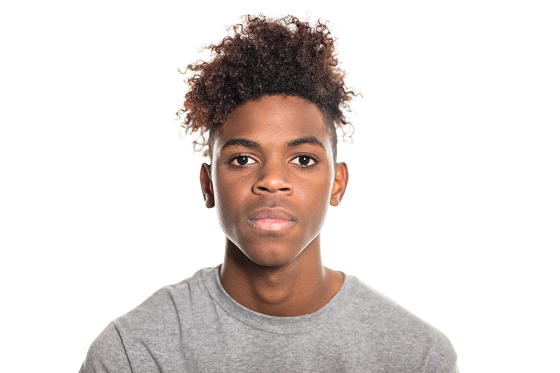
Delayed puberty: signs you are a late bloomer
Ali is 15 years old. Unlike his peers, his testicles are not yet enlarged and he has no pubic hair. Is this normal?
Puberty is often a tough period for both boys and girls. So many changes take place, both physical and psychological. This period can even be tougher for a teen whose friends are undergoing these changes yet they are yet to.
In girls, puberty typically begins between 8 and 13 years while in boys, it is between 9 and 14 years. In some cases, some boys and girls pass this age range without showing any bodily changes. This is known as delayed puberty.
Puberty is, thus, considered to be delayed when body changes that signal the beginning of puberty start later than usual.
In boys, puberty is considered delayed if the testicles are not enlarged, no pubic hair has grown, the penis has not enlarged, or if there are no signs of beard growth after 14 years of age.
In girls, delayed growth of breasts or pubic hair after 13 years and 16 years for periods signal delayed puberty.
The most common sign is when physical changes do not occur or if they do, they do not progress normally.
What are the causes of delayed puberty?
Often, delayed puberty is just normal and it is just a matter of changes occurring later than usual. It could be genetic and you may notice that it is common in certain families. The best thing about this is that once puberty begins, it is likely to progress normally.
In both boys and girls, it can occur because if there is an issue with the part of the brain that controls puberty.
Some illnesses can also lead to delayed puberty. They include:
Chronic conditions: Some illnesses can make it harder for puberty to start. They include Sickle cell diseases, Diabetes Mellitus, Liver disease, Kidney disease, Turner syndrome in girls, or Klinefelter syndrome in boys
Malnutrition: If a child does not get proper nutrition, their body may not be able to handle puberty well. Anorexia, a disorder that causes people to be overly obsessed with their weight thus often starve themselves or engage in too much physical exercise, is a possible cause for delayed periods.
Hormone issues: Conditions that affect glands that are involved in development may lead to delayed puberty.
Is it treatable?
In most cases, delayed puberty does not require treatment. This is especially the case if early there are early signs that puberty will progress normally.
However, this delay may affect some psychologically. In such cases, reassurance and counseling can work. However, some young people may not be patient but parents and guardians have to constantly reassure them that these changes will happen eventually and that everyone is different.
If you are experiencing delayed puberty, talk to a trusted adult. This could be your parents, teachers, older siblings, counselors. Once you express your feeling to a trusted adult, they should help you cope with them. They will also walk with you throughout this journey.
In other cases, the changes may have begun but the progress may be unusual. In such cases, it is important to visit a doctor for medical tests. In case of any medical problems affecting normal progression, the doctor should recommend treatment options.
In other cases, the doctor will recommend hormone therapy to kick start the changes. After this treatment, the body’s hormones usually take over to complete puberty. Talk to the doctor about this.
Are you, or were you, a late bloomer? Talk to us in the comments section.
